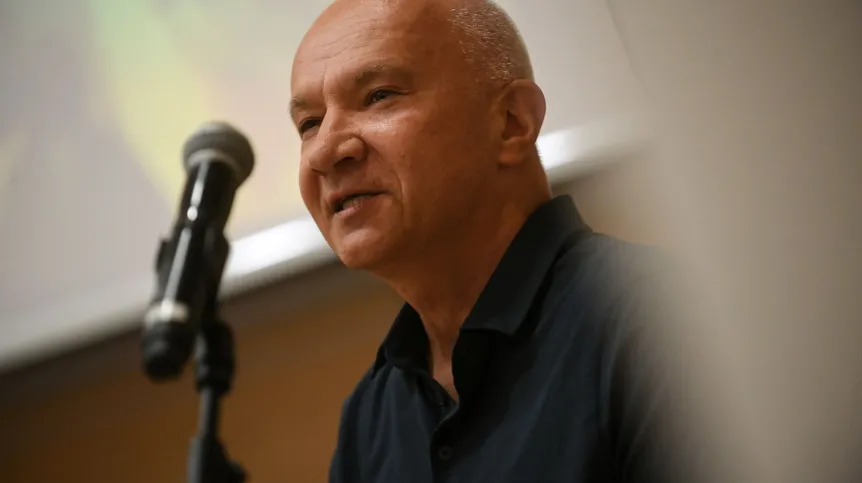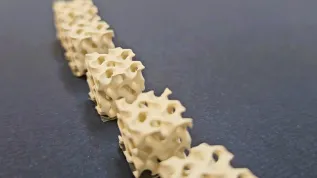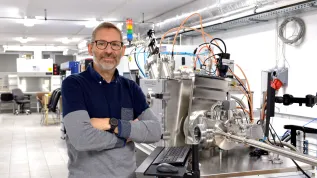
19 units representing the worlds of science and business announced the establishment of the Quantum Technologies Cluster (Q Cluster) at the Centre of New Technologies of the University of Warsaw. The aim is to cooperate on the development of quantum technologies.
'Two years ago, a Polish quantum initiative was launched, bringing together eight leading centres in Poland, including the University of Warsaw, which is our host today. We are now at a very important point not only for quantum physics, but also for the economic history of our homeland. Today, we witness a meeting of three key stakeholders of this project: the Polish science with its most eminent representatives; the Polish industry and the Polish state', said Maciej Małecki, Secretary of State at the Ministry of State Assets, who attended the project launch conference.
Małecki mentioned the role that quantum technologies have to play in the country's defence strategy.
'Now that every day we see shocking images of Russian aggression against Ukraine on TV screens and we are worried about the security of our country, our thoughts run toward the ways we can use quantum technologies and the results of your work to improve our country's defence system', he said to the gathered scientists and entrepreneurs. He also expressed his hope that thanks to the practical application of the solutions developed by the Q Cluster, the Polish economy would benefit and become more competitive. 'Poland cannot afford to waste any time at this point when it comes to this technology', he said.
An eminent Polish theoretical physicist, Professor Artur Ekert, one of the pioneers of quantum cryptography. and member of the Scientific Council of the Centre of Optical Quantum Technologies at the University of Warsaw, contributed to the establishment of the cluster. In his speech, he emphasized the importance of building an ecosystem created jointly by science, business and state institutions.
'It's relatively easy to do good science with good people. It is much more difficult to take scientific research and translate it into something that has applications, because for this one needs an ecosystem and the good will of institutions that can offer support', said Professor Artur Ekert. He added that Polish scientists had a good reputation in the world in the field of quantum physics.
'We maybe have a late start, but we have great people in Poland. Polish science has always been good when it comes to quantum physics. The Polish school of quantum optics was well known in the world. We have people who can look at quantum mechanics in commercial terms as well. And - as I can see - we have people in the government and government agencies who are seriously interested in helping. This means that it is possible to create an ecosystem', Ekert said. He warned that in the future cooperation should be real and not based only on good words.
'I just hope that we do not waste this opportunity. Because it's fun to meet and say a few nice words, and then it often doesn't work out. So I hope that we will continue all this and that the declarations made here are sincere, and that Polish science, the Polish industry and the Polish government will be proud that Poland can mean something in quantum technologies', he added.
In addition to the University of Warsaw, the cluster includes the following universities: the Jagiellonian University, the Nicolaus Copernicus University in Toruń, the Adam Mickiewicz University in Poznań, the University of Gdańsk, the Wrocław University of Science and Technology; as well as the Institute of Physics of the Polish Academy of Sciences and the Centre for Theoretical Physics of the Polish Academy of Sciences. The business is represented by the following companies: Beit, Exatel, Fibrain, Nanores, ORCA COMPUTING, QNA Technology, Quantum Blockchains, Quantum Flytrap, Quantum Optical Technologies, Sequre Quantum; Syderal Polska.
PAP - Science in Poland, Urszula Kaczorowska
uka/ agt/ kap/
tr. RL













